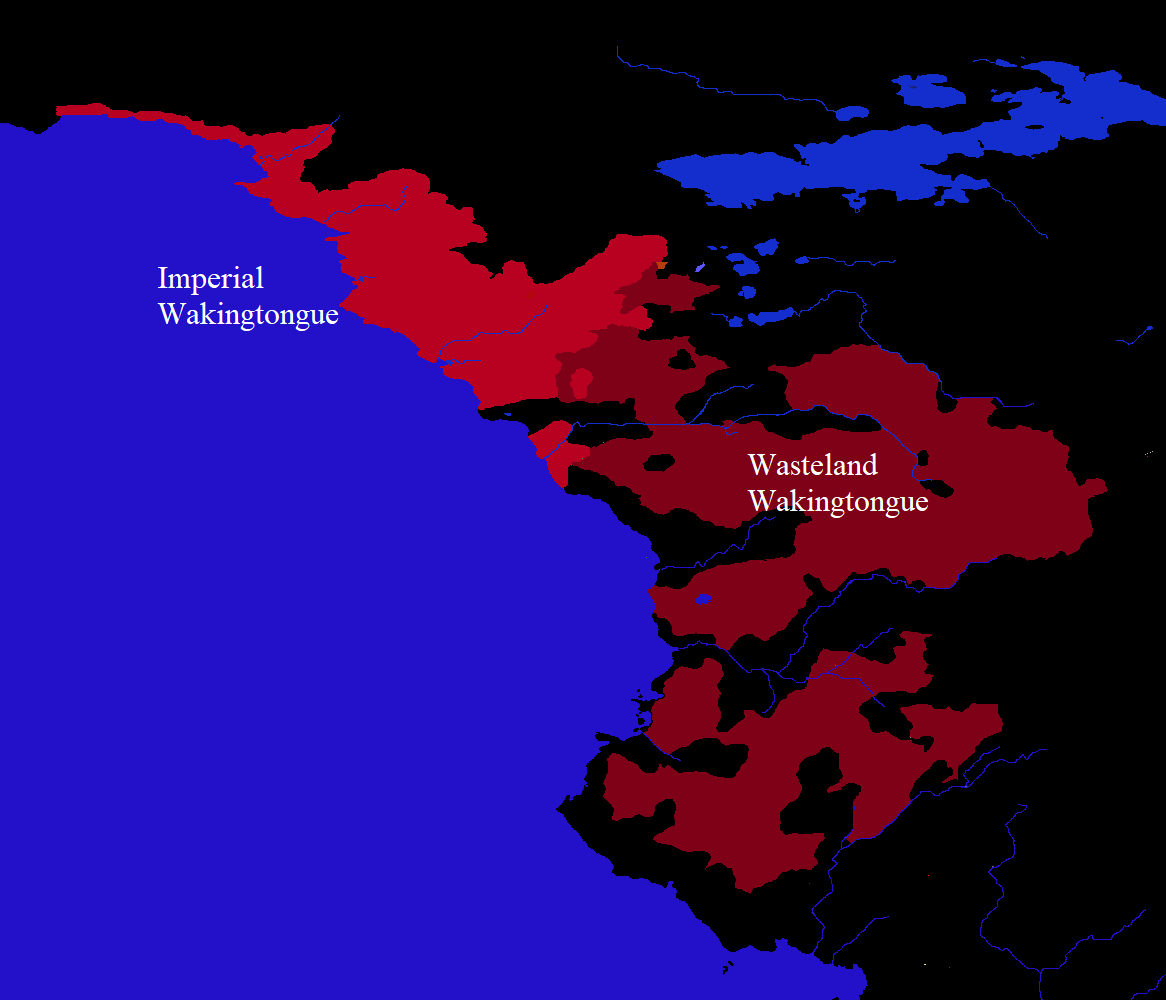Wakingtongue language
Also known as "Kivish language" or "Stildanian common", Wakingtongue is the dominant language of the Empire of Kizen, the most common commercial language of coastal Stildane, and a direct linguistic descendant of the original language all Kobolds were created knowing. It is considered by many to be a divine language, or at least a magical one, as it is the direct creation of the Gods; it is also closely related to many of the other surrounding languages, which it was made to be mutually intelligible with.
Wakingtongue is still the most commonly understood and widely taught Stildanian language, even if its dialects have drifted rather far from each other. It is also considered one of the core languages of wizardry by many abroad.
The names of Wakingtongue are found all across Stildane. Gender matters not.
Wakingtongue is made from smashing Turkish and German together. Everything from Turkish, to German, to Norse names are all fair play here. Go wild, Stildane is the land of everything.
Wakingtongue Names
- Baldrich (Axe king)
- Aindrich (Moon king)
- Barza (Like Rock)
- Savas (Warrior)
- Fayna (Good with Horses)
- Selisk (Beloved one)
- Savek (Warrior)
- Itko/Iteko (Good Kid)
- Duzreg (Trickster)
- Faytim (cavalryman)
- Sorek (singer)
- Inek (one who believes)
- Erin (Spring)
- Aika (white child)
- Ikin (cow keeper)
- Erken (wolf)
- Alba (bear)
- Arzet (bee-keeper)
- Kosho (empty of badness)
- Ukara (inspiring)
- Zedever (fights evil)
- Kenen (Makes traps)
- Orik (child of the forest)
- Rolto/Ralta (puzzling child)
- Von (Parent-like)
- Krona (leaderly)
- Gevon (Child of Divinity)
- Kadon (Child of lunar heaven)
- Aslo (lion)
- Rekala (pink shell)
- Dulster (creator of laughter)
- Isketer (creator of love)
- Banatar (spell-maker)
- Soriter (musician)
- Gunter (one who makes sunlight)
- Etuva (good chick)
- Dezerad/Dezera (like a boar)
- Aybara/Arbarad (like a bear)
- Nilabel (not sick)
- Muzulet (innocent)
- Letma (teacher)
- Enekon
- Iliskr (medicine-bearer)
- Solbrin
- Lemeka
- Okerta
- Albara
- Yilna
- Selga
- Gelum (proud)
- Goren (wrestler)
- Zombra (glorious line)
- Klain (small horn)
- Yulain (heaven's horn)
- Jovenik (one who gives chase)
- Sevda (joyful)
- Florev (dutiful)
- Zohfen (holds anger)
- Orilskr (hearth keeper)
- Sahl (hawk)
- Kardel (eagle)
- Geba (scourge)
- Pyulin (pillager)
- Yalaskr (loot-bearer)
- Erluk (honest)
- Gainra (victorious)
- Sherel (the sword)
- Keseg (brave)
- Hosk (hammer)
- Reigen (traveler)
- Yukahl (sweetheart)
- Feriskr (storm bearer)
- Nilosk (fearless)
- Ozkar (icy-eyed)
- Neshra (void of sin)
- Omarn (hopeful)
- Gruhan (big horn)
- Vlad (hunter)
- Niuna (without sadness)
- Tovek (drummer)
- Wilga (wise)
- Yisha (clean)
- Lizen (like lightning)
- Kalkren (like a turtle)
- Nilula (without lies)
- Ilrain (long-horn)
- Briden (peace)
- Kazel (destiny)
- Kina (beaver)
- Schovern (promised to the temple)
- Feklin (arrowlike)
- Kloskr (blood-taker)
- Shraiskar (makes them scream)
- Shlim (sleepy)
- Rehain (giant horns)
- Karlain (sharp horns)
- Relbeka (strong arms)
- Uruva (heir)
- Kyulek (uses a mace)
- Shuren (big tail)
- Zek (rich)
- Uchu (green flowered)
- Mawcha (blue flowered)
- Keresh (red flowered)
- Girum (yellow flowered)
- Morla (purple)
- Morsha (purple flowered)
- Baisha (white flowered)
- Sasha (black flowered)
- Rakirim (who has many colors)
- Arvuk (spring-root)
- Frusha (spring flower)
- Istay (good seed)
- Io (good leaf)
- Yohtko (many leaves)
- Izdin (wheat-like)
- Horna (maple)
- Rumar (rainy)
- Kelllin (pinelike)
- Klenskr (claw-bearer)
- Zenalim (silver blooded)
- Alvek (golden one)
- Ishta (good rock)
- Mozler (crystal eyes)
- Dezin (iron)
- Voshta (white stoned)
- Yedra (bat)
- Nisufa (without metallic impurity)
- Polkor (copper)
- Dolzin (burrower)
- Renrik (hard worker)
- Eltvar (old soul)
- Nilnev (stonesoul)
- Oskel (ashen)
- Solmen (worm friend)
- Arunen (awake; kivish religious meaning)
- Ruli/Rula/Rulo (dreamer)
- Kazalima (child of the phoenix)
- Verma/Verkoma (child of Verkohn)
- Kivlin (like Kivay, god of wisdom)
- Keteskr (bearer of sacred love)
- Evrigen (from "of Rumek's fury")
- Uzrina (daughter of Rumek's skill)
- Nilkeva (without dreaming terror)
- Nilava (without dreaming despair)
- Dovesh (weaver)
- Shofa (shepherd)
- Garcha (gardener/land owner)
- Tunlar (merchant)
- Inhef (farmer)
- Alden (farmer)
- Vyelek (rancher)
- Stenek (artisan)
- Berk (miner)
- Stalna (soldier)
- Rahsa (ambiguous)
- Reigen (traveler)
- Yulbay (heavenly lineage)
- Ubra (from low birth)
- Setosger (carrier of corpses)
- Srigar (priest)
- Zekma (rich family)
- Rutenkar (greater merchant leader)
- Amantin (officer, commander)
- Mevarlan (grave-maker's blood; old warrior name)
- Eltrich (of old kings)
- -ek: one who
- Ko-: bad
- It/Eet-: good
- -Im: possessive
- -zen: possession
- Dev-: from
- -ten: from
- -ad/-ed: similar to
- -ster: produces, displays
- Ru-: big, super
- -ohn: child of
- -nil/Nil-: not, opposite
- -bey: descended from
- -ma: family of
- -tel: denizen
- -onli: denizen
- -rich: lord, monarch




Comments